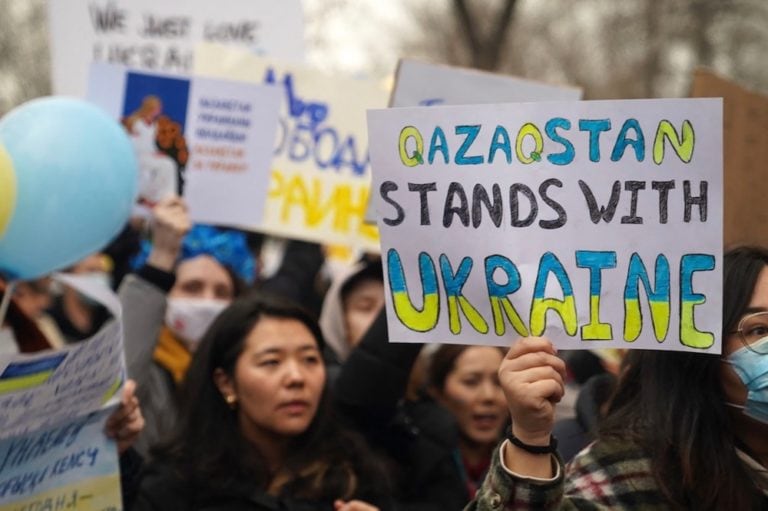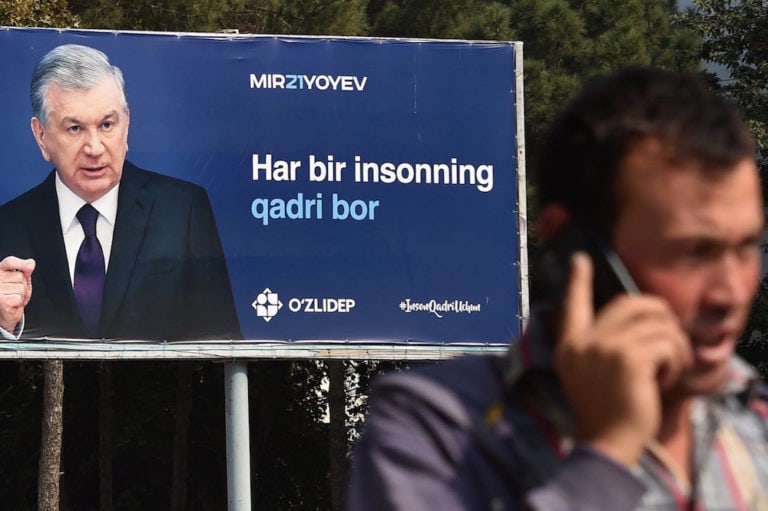(WiPC/IFEX) – On 19 February 2009, Uzbek writer and activist Mamadali Makhmudov will have been imprisoned for ten years, making him one of the longest serving detained writers on the records of International PEN’s Writers in Prison Committee (WiPC). Another individual arrested in the same case, Muhammad Bekjanov, also remains detained. They have suffered dire […]
(WiPC/IFEX) – On 19 February 2009, Uzbek writer and activist Mamadali Makhmudov will have been imprisoned for ten years, making him one of the longest serving detained writers on the records of International PEN’s Writers in Prison Committee (WiPC). Another individual arrested in the same case, Muhammad Bekjanov, also remains detained. They have suffered dire prison conditions and ill health throughout. The Writers in Prison Committee of International PEN is calling for their release.
Makhmudov, an award winning Uzbek writer and opposition activist, was arrested on 19 February 1999 after a series of explosions in Tashkent. Several others were arrested in connection with these events, one of whom, journalist Muhammad Bekjanov, also remains in prison. They were charged under 1) Article 158 of the Uzbek Criminal Code – threatening the president; 2) Article 25-159 UCC – threatening the constitutional order; 3) 216 – Organising banned public associations and religious organisations; and 4) 242.1 – organising a criminal group. Makhmudov was sentenced to fourteen years in prison. Bekjanov was given a 15 year sentence, subsequently reduced to 12 years. Their arrests were linked to the leader of the banned Erk opposition party, Muhammed Salih, himself a writer, who now lives in exile in Norway. (Bekjanov is Salih’s brother.) Both Makhmudov and Bekjanov are suffering poor health in detention. Bekjanov has been treated for tuberculosis which is rife in Uzbek prisons.
The convictions led to international condemnation. The trial was deeply flawed with credible reports that the defendants suffered severe torture. Makhmudov has issued a number of statements detailing maltreatment in prison. Prison conditions in Uzbekistan are appalling. For example, Makhmudov spent some time in the notorious Yaslik prison. In its 2001 annual report, Amnesty International stated that Yaslik, a former Soviet military barracks, is situated on contaminated ground and that its prisoners suffered severe abuse. In December 2008, Uzbekistan’s human rights record was reviewed under the Universal Periodic Review, a process where UN member states scrutinise other UN member states’ human rights records. Many countries recommended that Uzbekistan address, among other issues, torture, poor prison conditions and attacks on freedom of expression, recommendations accepted by the Uzbek representatives present. It remains to be seen whether this will lead to real improvements.
BACKGROUND:
Throughout the 1990s, Makhmudov was a critic of the policies of the Uzbek presidency. Between 1994 and 1996 he was imprisoned for alleged embezzlement and abuse of office, charges which at the time were considered by PEN and Amnesty International to have been fabricated and that his arrest was because of his association with Salih.
In the early 1980s Makhmudov published a novel titled “The Eternal Mountains”, which is a historical fiction account of the events that happened during the Russian occupation of central Asia in the late 1800s. It was met with acclaim in Uzbekistan, winning the prestigious Cholpan award in 1992. In 2008 the publishing house L’AUBRE published Makhmudov’s book in French, translated by Philipe Frison, under the title “La Montagne eternelle”.
Makhmudov and Bekjanov are Honorary Members of the English, American, Netherlands, USA and Canadian PEN Centres.


